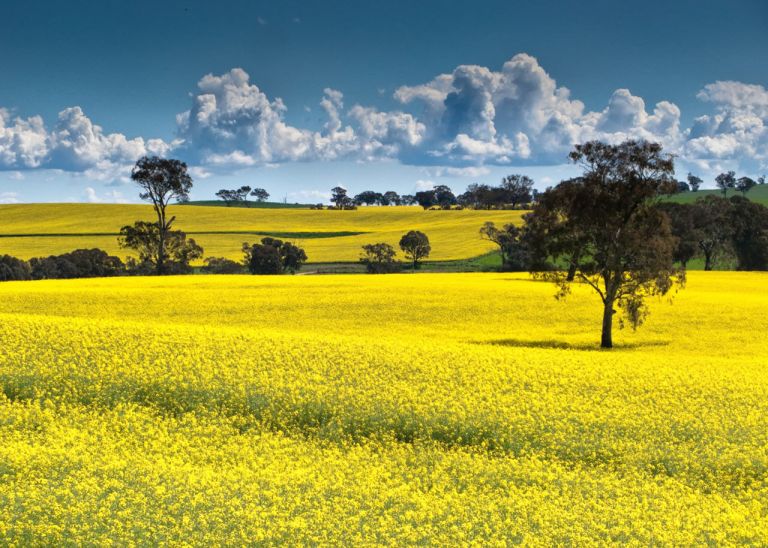Join our team
Western NSW Local Health District is unlike anywhere else. We attract clinicians with a sense of adventure and a ‘can do’ attitude, who work to the top of their scope and enjoy a fulfilling life outside of work
We promote greater autonomy and responsibility and support you in an inclusive, collaborative and caring team environment with a better work-life balance and more time for you.
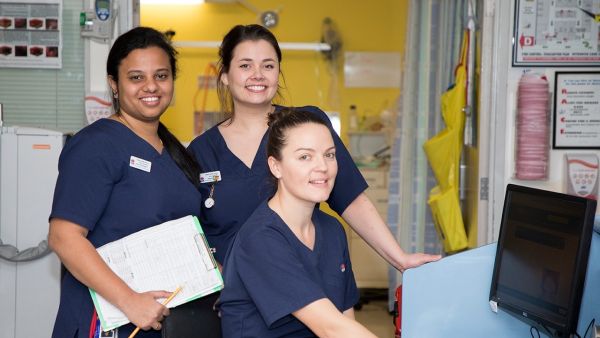
Bring your purpose to life, broaden your scope and fast track your career, experiencing a broad range of interesting presentations. Be supported through training and education.
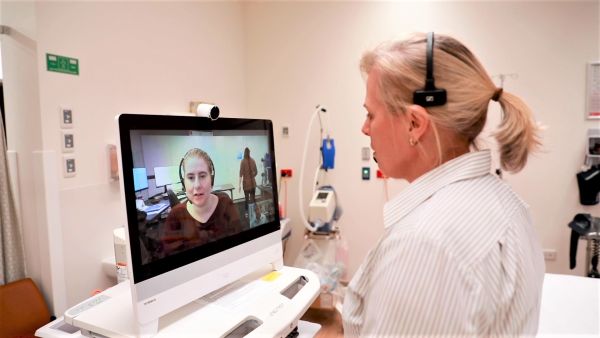
We’re world-recognised leaders in the delivery of virtual care as we strive toward our goal of healthier rural people, close the gap on Aboriginal health and build thriving communities.
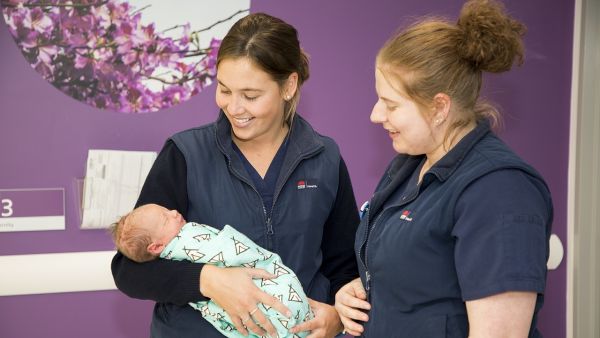
Join us be a part of shaping the future of rural health. Our world-renowned models of care including Virtual Rural Generalist Service, Virtual Allied Health and Virtual Pharmacy, all deliver care closer to the homes of our clients.
Our Employee Value Proposition
"You’re here to experience a broad range of interesting and challenging work scenarios that will bring your purpose to life, broaden your scope and fast track your career.
You’re here because greater autonomy and responsibility is your thing, your skills will be developed to reach your potential, and we’ll support your wellbeing in an inclusive and collaborative team where diversity is valued.
You’re here because we are world-recognised leaders in the delivery of virtual care as we strive for healthier rural people and thriving communities.
But the main reason you’re here is because you want to be part of shaping the future of rural health.
Sometimes it will be hard, other times demanding, but we promise it will always be extremely rewarding."
Incentives
At Western, we offer a range of clinical and non-clinical roles in unique and interesting locations. Working in a rural location provides a great lifestyle, career opportunities and an experience you'll never forget.
You may be eligible for a range of incentives when you join our rural and remote facilities.
- Rural Health Workforce Incentives of up to $20,000 to relocate and join us and up to $10,000 each year you stay
- A $20,000 midwifery sign-on bonus (limited time and eligibility)
- Salary packaging – up to $9000 for living expenses; $2650 meal and entertainment; and additional packaging available for remote area housing, novated leasing and relocation expenses
Relocation assistance available - such as moving and family travel assistance
Accommodation assistance available
Visa sponsorship considered
We support your career progression by providing additional leave for professional development, so you can keep learning and gaining skills to reach your full potential.
- Study leave
- Up to $12,000 Tertiary Health Study Subsidy for beginning and graduate students (dependent on position and eligibility)
- Leadership development programs
Common questions about incentives
The Rural Health Workforce Incentives Scheme (RHWIS) is an incentive package that supports recruitment and retention in areas of critical need and hard-to-fill vacancies in rural and regional NSW.
The RHWIS is available to eligible positions and health workers as determined by the NSW Health that are critical to service delivery.
Positions and locations receiving incentives are subject to certain criteria. Not all rural and regional health locations and positions may be eligible.
View an up-to-date list of positions attracting incentives.
‘Incentives offered’ will be clearly displayed on the job advertisement.
If you have accepted and commenced and incentives package for your position, we ask that you stay for a minimum of 18 months. After 12 months you'll be eligible for retention incentives.
If you leave before 18 months you may have to repay all, or a percentage of the incentives received.
You may be able to receive the attraction and relocation incentives package the following way:
- Processed as a fortnightly allowance
- Reimbursement of removalist, storage costs
- Reimbursement of travel and meals to relocate from previous location to new location
- Reimbursement of laptop, internet
- Reimbursement of accommodation costs such as rental reimbursement
You can choose to mix how you receive the incentives up to the total package value. For reimbursements a tax receipt is required.
All incentives are processed pro-rata for part-time employees.
Yes, if your position is deemed as hard to fill or critical, you may be eligible to receive the retention allowance. Please talk to your manager to find out if your position is eligible.
Got more questions about incentives?
Email the Incentives Coordinator on: wnswlhd-incentives@health.nsw.gov.au
Our region and lifestyle
Feeling the stress of daily life? Living in Western NSW comes with many benefits for you and your family. Enjoy a slower pace of life, become part of our friendly and diverse communities, take part in a range of sporting and leisure activities and experience improved work-life balance.
Explore our region and way of life

Fly direct to Dubbo from Sydney in just 1 hour or Melbourne in 2 hours. Direct flights are available to Sydney from Dubbo, Orange, Parkes, Mudgee, Cobar and Bourke and to Melbourne, Brisbane, Canberra, Newcastle and Broken Hill from Dubbo and Orange.
Once you land at Dubbo or Orange, enjoy a scenic drive through Australian bushland to any of our smaller hospitals or Multipurpose Services, which will take between 1 to 4.5 hours, depending on the location.
Download our map with approximate travel times (PDF 763.23KB)
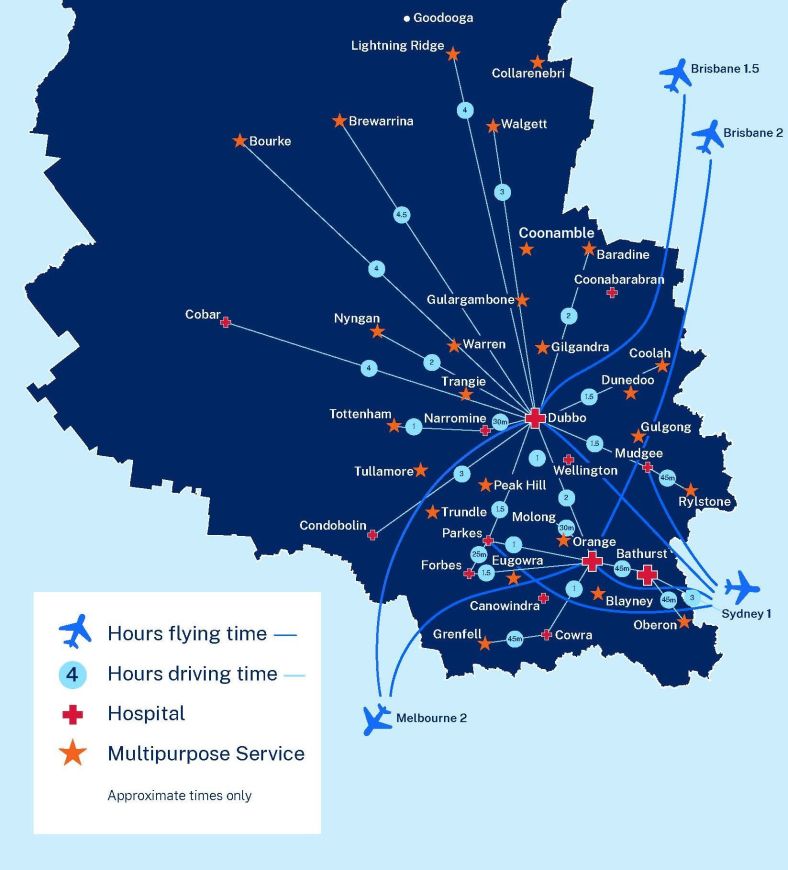
Our hospitals and facilities
We care for close to 270,000 people in our hospitals and health facilities, which include:
- the largest rural mental health service in Australia
- 3 major rural referral hospitals at Orange, Dubbo and Bathurst
- 38 inpatient facilities including 25 Multipurpose Services and District Health Services at Mudgee, Cowra, Parkes and Forbes.
From large regional centres to small community health facilities – Western NSW LHD covers our vast and diverse community.
Featured facilities
See a snapshot of some of our unique facilities and learn about our communities.
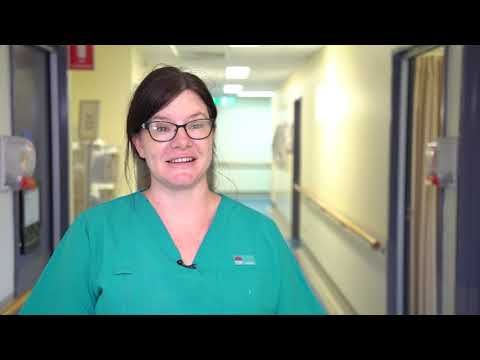
Meet our Western NSW GP VMOs
Our GP VMO team talks about their experiences and support they receive to be their best while working in regional NSW.

Kidney Specialist James Collett, Physiotherapist Melinda Collett
"The opportunities I could get in Dubbo far outweighed anything I could get in Sydney."

Meet Isabella - GradStart Western NSW
After moving from Wollongong, newly graduated Registered Nurse Isabella is loving relaxed country life, working in both Dubbo and Gilgandra.

Tim Stanley, Head of ICU , Dubbo Health Service
"Everybody tends to get to know each other and that makes it a very warm and friendly place to work."
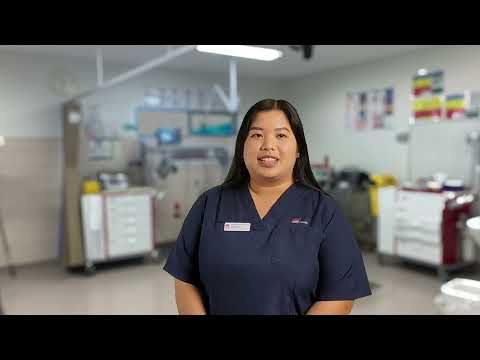
Rural Generalist Nurse Training
Get an introduction to our Rural Generalist Nurse Education Program in Western NSW with an overview and the benefits of participating.
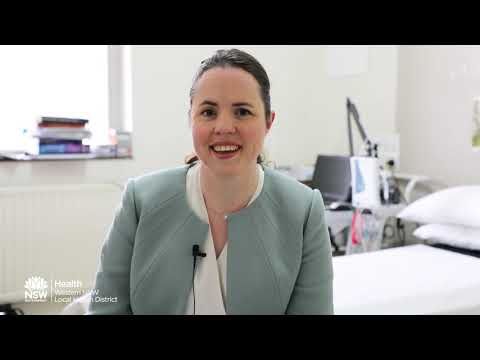
Dr Kate Crossley, Neurologist, Dubbo
“My proudest achievement is establishing a stroke pathway which is improving the care of patients."

GradStart in Western NSW LHD
Our regional and rural Gradstart graduates get ‘hands on’ much earlier than their metropolitan counterparts.
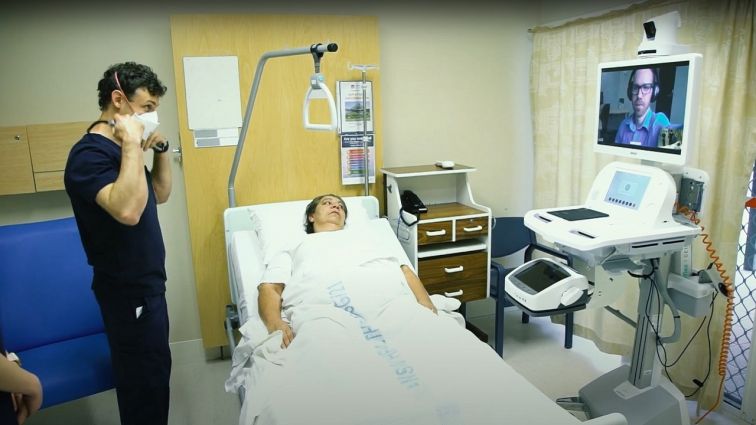
Virtual Clinical Pharmacy Service in Western NSW
Our Virtual Clinical Pharmacy Service gives NSW pharmacists access to patients, doctors and nurses in remote hospitals via telehealth.
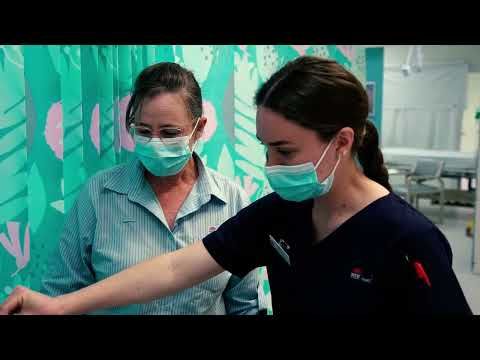
Rural Generalist Nurse Training in Western NSW
Sonia is a passionate Regional Nurse Educator at Western NSW Local Health District who works with new rural nursing graduates.

The new Western cancer centre - Dubbo
Discover the new world-class Western Cancer Centre in Dubbo which is advancing cancer care for regional patients.
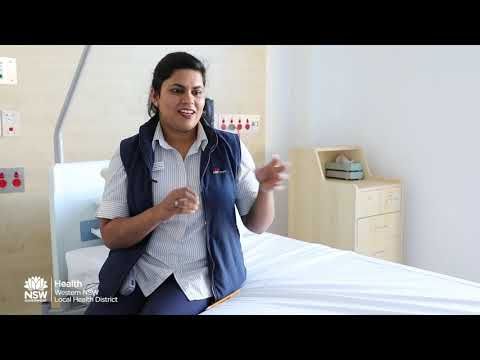
Rima – Nursing Unit Manager
A lifestyle change in Dubbo has provided everything that Rima and her family could ask for and more.

Careers and canapes
Senior medical students and junior doctors joined Western NSW LHD senior medical specialists for an unique night of medical 'speed dating.'
4T's Single Employer Rural Generalist model
We're leading an innovative whole-of-health approach to care in rural communities, servicing the 4Ts (Tottenham, Trangie, Trundle, Tullamore).
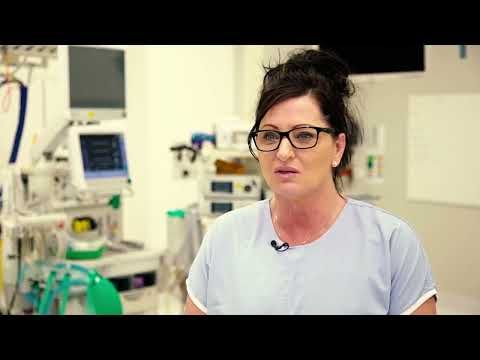
Christal Ayton - Nurse Endoscopist
"Never did I think I would be a surgical assistant for a general surgeon or a nurse endoscopist - the first in NSW."
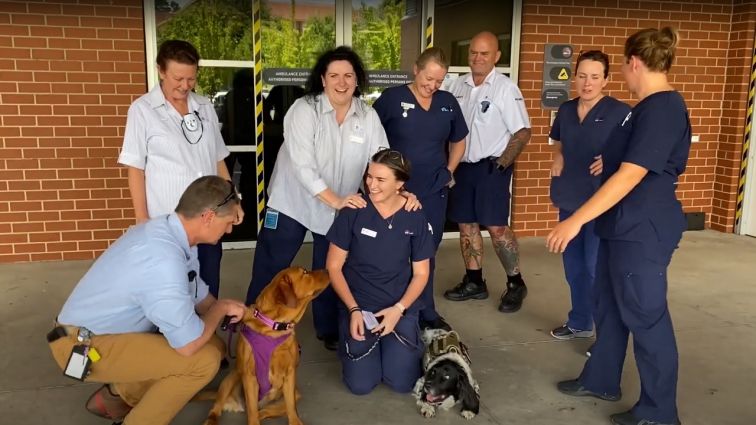
Orange Staff Wellness Dogs
Two paw-fect puppies are making the Orange Health Service ED staff smile. Orange has initiated the staff support and wellness dog program.

Meet our rural JMOs - Emergency
Junior Medical Officer Experience in Emergency at Western Local Health District Dubbo facility.
Virtual Clinical Pharmacy
Our Virtual Clinical Pharmacy Service gives NSW pharmacists access to patients, doctors and nurses in remote hospitals via telehealth.

Rural and remote nursing in Western NSW
How is nursing different in our rural sites? Hear how nursing in rural and remote areas can be one of the most rewarding experiences of your career.

Kristy Hatswell, Physiotherapy Manager, Dubbo Health Service
Making the move to Dubbo from the city, Kristy has accelerated her career growth.
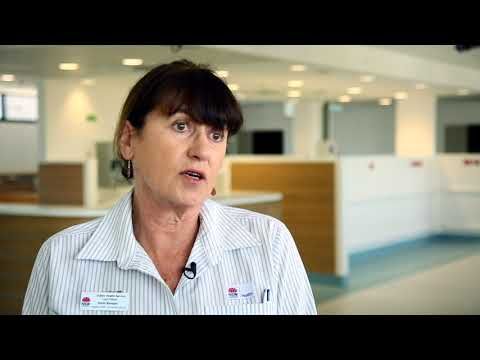
New Dialysis Unit at Dubbo Hospital
See how Dubbo's new purpose-built Dialysis Unit is making a real difference for patients who regularly use the service.
Diversity and inclusion
As the largest employer in Western NSW, we understand building a workforce that represents the community it serves is vital in delivering inclusive and responsive services.
Our workplace is one of respect, inclusion and belonging. This means treating everyone with courtesy and valuing everyone’s contribution, regardless of their position, role, gender, ethnicity or ability.
We're committed to building an environment that is physically and psychologically safe for women, Aboriginal and Torres Strait Islander peoples, people with disabilities, culturally and linguistically diverse groups, and all our staff.
NSW Health welcomes people from diverse backgrounds. We are committed to building a workplace that reflects the community we serve.
We support our staff to continue professional development while living a balanced life.
We believe an engaged workforce delivers the best health outcomes for our community.
We encourage a culture that reflects our core values and respects the differences that everyone brings.
We aim to have a workforce that understands the unique needs of our communities.
Our commitment in action
Our team is working on a number of diversity and inclusion initiatives that reflect our statement of commitment.
Working group
We have established a Diversity, Inclusion and Belonging working group to collaborate on, champion and achieve diversity, inclusion and belonging outcomes for our District.

Diversity and inclusion strategy
We are developing an organisation wide Diversity, Inclusion and Belonging Strategy. Find out more about our strategies and plans that guide our service delivery.
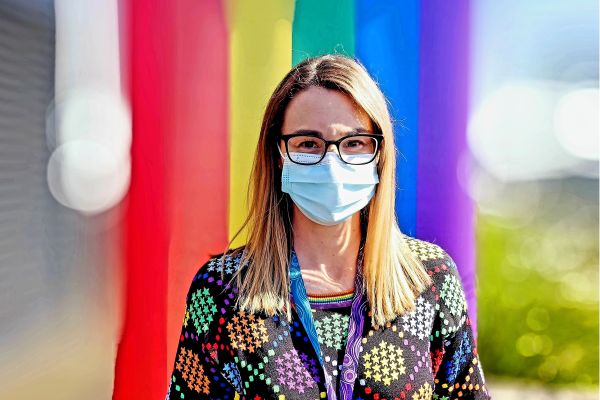
Register for Western NSW job alerts
Follow Western NSW LHD
Follow us on social media.
